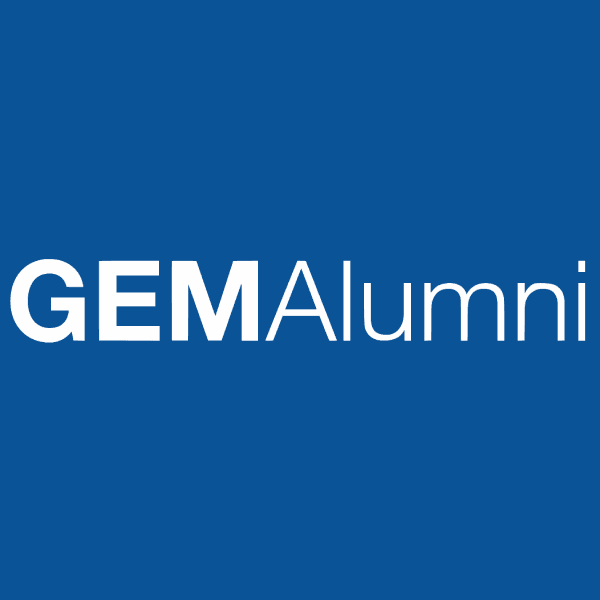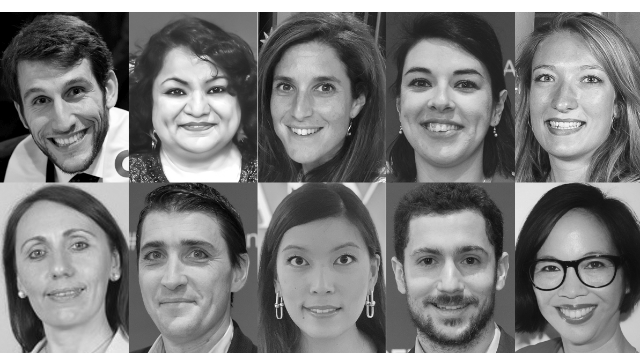GEMAlumni chapters around the world: what they retain from this crisis
At a time when the world is hesitating between confinement and a return to a more sustained economic life, we asked the leaders of our Alumni communities in the different regions of the world for their personal feedback on the impact of this crisis on them, their ways of life and work, and their communities. We offer you this collection of short testimonials on what has struck them.
Paolo Cervera, GEM MSc 2018, GEM Alumni in Dubai
Manager of Innovation and Future Foresight Consulting at Bnsights
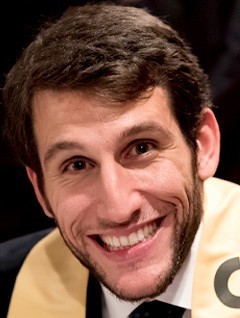 As a country that relies heavily on oil and tourism, the Covid-19 pandemic coupled with the drop in oil prices has had a major impact on the UAE .
As a country that relies heavily on oil and tourism, the Covid-19 pandemic coupled with the drop in oil prices has had a major impact on the UAE .
The strict 4 week lockdown measures that were imposed in Dubai and the UAE brought demand and businesses to a standstill while consumer confidence has been badly affected and will take time to recover. Dubai specifically relies on hospitality, tourism, entertainment, logistics, property and retail, which are all industries being impacted by the pandemic worldwide. Many businesses will need additional support from the Government in order to stay afloat and may not survive until the end of the year.
Businesses are understandably struggling during these difficult times, and only those that have been agile and started to change the way they do business from early on, are showing positive signs of survival.
The GEM alumni community, like many expats in Dubai, has seen a few of its members repatriated or leave Dubai for other destinations. Due to the pandemic, the quarterly alumni social gatherings have been suspended for the time being, however we have seen alumni members coming together and supporting each other by sharing job opportunities, their network and information on personal and professional wellbeing with one another.
The GEM alumni community in Dubai looks forward to better days ahead, to growing our community and hopes that new members will find opportunities in the UAE.
Shweta Berry, GEM 2006, GEM Alumni in New Delhi
Director Marketing & Head of Strategic Alliances- Industry & Academia, Marcom and CSR at Aeris Communications
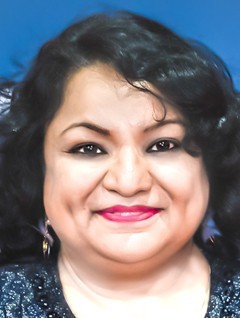 For our generation, Covid19 crisis is unprecedented and overwhelming! Having experienced one death in family due to Covid19, and one more family member struggling for life in the hospital, I must say, life has really changed on all fronts!
For our generation, Covid19 crisis is unprecedented and overwhelming! Having experienced one death in family due to Covid19, and one more family member struggling for life in the hospital, I must say, life has really changed on all fronts!
While the Government and essential services providers are working 24x7 to combat this invisible enemy, the onus truly lies on us for our own safety and prevention till a cure is available as over-the-counter drug.
On the business front, since I work for a global technology company, we are used to working with remotely located teams. However, due to the nationwide lockdown and WFH, the ‘time for work’ and ‘me- time’ started to blur out. The initial few weeks were stressful. Would like to share things which are helping me cope up with the ‘New Normal’:
1. Self care - with meditation, chanting & breathing exercises, twice a day for mental wellbeing; and, eating nutritious food which are rich in vitamins and proteins, drinking plenty of water, walking and sleeping at least for 7 hours a day, to keep the body fit.
2. Keeping the Mind Engaged - with both office work and hobbies. Being a technology marketing and communications specialist and content strategist, I produce a lot of techno-business content for internal & external stakeholders, plus for media coverage. This requires intensive reading, analysis and relevant content production, keeping the mind productively busy. Cooking fusion and trying new recipes has been a great stress buster.
3. Contributing Meaningfully - I have been sharing knowledge on technology, skill development and future of workforce at online webinars organised by industry and academic forums, mentoring and interacting with thought leaders and students on a regular basis. Also, extending support for fund raising for two NGOs –
a. SUTRA (sutrahp.org) in Himachal Pradesh needs funds to provide food and nourishment for migrant labour’s children, pregnant women and elderly who don’t have ‘ration’ cards to get government support. They are distributing 1 boiled egg, 1 banana and 1 Vitamin C tablet to 80+ children daily in Himachal Pradesh.
b. ANTARA Global (http://antaraglobal.org/) in Kolkata which runs hospital for patients with mental illness, drug addiction and alcoholism. They are hit badly due to Covid19 & devastating cyclone Amphan, and, need funds for infrastructure repairs and extra beds for the rising numbers of patients suffering from trauma and mental issues!
4. Keeping Network Strong –
a. The GEM Alumni network in India has become more close-knit during this crisis. Members have gone beyond sharing birthday greetings & updates on each other’s wellbeing. We are now using the WhatsApp & Facebook group for posting job openings, new opportunities, exchanging industry updates, webinar links, knowledge and experience sharing on a regular basis.
b. Another important aspect is staying connected with family members & friends on video calls, skype and WhatsApp.
I believe the silver lining in these darkest novel Coronavirus clouds, is that, we have been blessed with time to stop running in the mad-race and do self introspection, start holistic care for self and family, and, maintain a balanced lifestyle. Wishing everyone good health and strong immunity.
Beatrice Mayence, GEM PGE 2002, GEM Alumni in Sao Paulo,
Head Of International Business Development at Michelin Fleet Management/Sascar
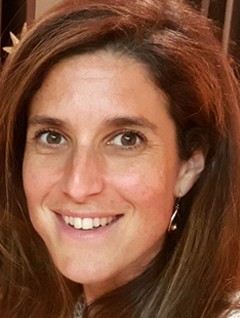 Context: Brazil entered the pandemic at the same time as Europe, the only difference is that local authorities were not making any decisions on whether or not to stay in quarantine. From one day to another, we say goodbye to our colleagues not knowing when we’ll be back and with no clear instructions from our government. In this context, companies had to reinvent themselves to drive through this crisis and maintain business going.
Context: Brazil entered the pandemic at the same time as Europe, the only difference is that local authorities were not making any decisions on whether or not to stay in quarantine. From one day to another, we say goodbye to our colleagues not knowing when we’ll be back and with no clear instructions from our government. In this context, companies had to reinvent themselves to drive through this crisis and maintain business going.
Culturally, physical contact is highly important, is part of the codes and is regulating personal and professional lives. Suddenly, we put a virtual wall in our professional exchanges and relationships which shaken hardly our relationship model. How to deal with a world where you cannot read someone emotion or share moments and space?
As a manager of multicultural team, I saw the impact on most countries in Latin America at different degrees. Here are the 4 pillars that allow us to carry on:
• Embracing technology: there are physical limits so we need to create new ways of sharing – In few days, we were all mastering the “new tools” to built the bridges that we needed to carry on working. Brazilians are very opened and technology oriented, this natural “sixth sense” appear very fast and clearly. Virtual coffee break, lunches, coffee break appeared in this new panorama.
• Empowering teams: in this context, everyone needs to be reassured and is also playing a high role in the dynamic of the all company to establish a “serene” virtual work environment. We all become agent of the changing process at the speed of light inspired by a powerful leadership.
• New skills: As in any crisis, talents get revealed and teams are adapting to new scenarios acquiring new skills or let existing ones take more space:
-Active listening
-Being more time efficient
-Create new ways of communicating
-Work through high uncertainty
-Creativity
• Communication and transparency are being a key driver when piloting company through the crises.
We are still learning but we cannot wait to come back to meet again.
We are now also taking with us this experience that lead to more questioning:
What are we carrying with us? Are we staying home based? How do we create a company culture, dynamic, sense of belonging if we are not physically together?
Magali Morisot, GEM PGE 2018-MIB 2017, GEM Alumni in Montreal
Montreal Information Technology & Services Consultant at BDO Canada
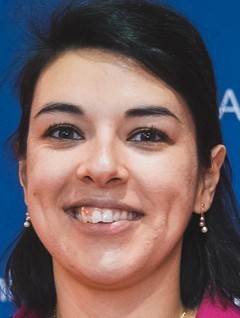 Confinement allowed me to spend more time on my hobbies, particularly where travel time had a tendency to reduce them!
Confinement allowed me to spend more time on my hobbies, particularly where travel time had a tendency to reduce them!
More time to exercise and redefine my professional and personal goals.
It gave me the opportunity to think about new things I would like to do in life, including developing a more sustainable lifestyle. The current period has proven once again that it is imperative to introduce this in our daily lives.
Caroline Hincelin Vouters, GEM PGE 2011, GEM Alumni in Lille
Responsable Développement Commercialisation offres de formation chez CEPRECO Formation CCI Hauts de France
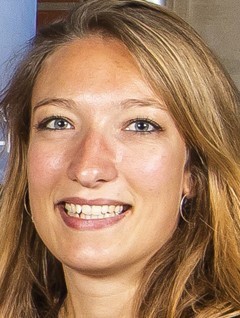 On March 17, 2020, all personal and professional projects suddenly came to a halt. Travel plans had to be postponed.
On March 17, 2020, all personal and professional projects suddenly came to a halt. Travel plans had to be postponed.
A new work organization had to be found very quickly. Here, with 2 small children we had to adapt, change our working hours, work differently.
In Lille, the streets were deserted. Everyone only went out to to do grocery shopping. We took the opportunity to prepare good food and exercise at home.
Now, life is taking its course again. We have reunited with friends, family and made our way back to the office.
We will remember this special time for a long time to come, during which we watched our children grow up while working from home. The GEM community in Lille met on March 10th, just before the events stopped. We are looking forward to reinventing our way of sharing and meeting you again!
Marianna Kalmykova Yanovskaya, GEM MBA 2004, WoMen@GEM Director, Sub-regional Controller South/East at TE Connectivity
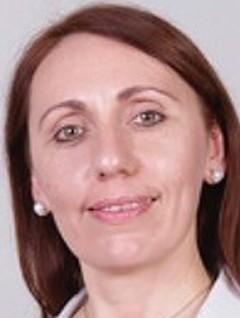 I strongly believe that in dark times there is light. Here are some thoughts/observations from me:
I strongly believe that in dark times there is light. Here are some thoughts/observations from me:
1) Health / well-being / environment
In my current position, I have to travel every month to other countries in Europe. At the beginning of confinement all my trips were cancelled. I have also gained one hour per day of commuting between home and the office. As a result, I have more energy, I have more time for myself and my family. This has clearly favored a better work/life balance. In addition, my carbon footprint has decreased significantly. I plan to favor teleworking at 80%.
2) Personal development
In January, I started a coaching training course. The time I freed up during the confinement allowed me to follow this professional training. Having practiced meditation for a long time, I started meditation sessions for my colleagues and the women of my association HerCentury to help them through this difficult period.
3) Organization of life
The confinement has forced us to review our daily mode of operation: as a family, we've gone to 90% of online grocery shopping with delivery. This allows us to free up time and also to change our consumption by favoring local producers and seasonal products. We plan to stay on the same organisational model.
Joanny Rigollot, GEM PGE 2001, GEM Alumni in Paris
Paris, Country Manager France at SAXOPRINT
 In the online printing business sector, at the height of the crisis, order volumes were dropped by a factor of 10 and today, almost 3 months after the start of the confinement, we are struggling to return to a satisfactory level of activity. This is due to the shutdown of entire sectors of the economy that are strongly linked to print production, from advertising to cultural events to institutional communication. Also to blame are budget cuts on items of expenditure that are not essential to recovery and due to the uncertainty that stems directly from the future development of this new, unfamiliar virus.
In the online printing business sector, at the height of the crisis, order volumes were dropped by a factor of 10 and today, almost 3 months after the start of the confinement, we are struggling to return to a satisfactory level of activity. This is due to the shutdown of entire sectors of the economy that are strongly linked to print production, from advertising to cultural events to institutional communication. Also to blame are budget cuts on items of expenditure that are not essential to recovery and due to the uncertainty that stems directly from the future development of this new, unfamiliar virus.
On a personal level, I am extremely lucky that my company Saxoprint has always allowed me to work in a home office environment. Apart from our children not going to school, we have been less affected than some friends and colleagues. And as with everything, good comes with the bad. This crisis has allowed me a real introspection and a reflection to rediscover my family unit, to weigh options and prioritize upcoming professional choices, and to anticipate the future by including the current developments of today's world. A pause, therefore, sometimes painful but oh so beneficial.
Séverine Fortin, GEM PGE 2010, GEM Alumni in Singapore
Director - Trade Asia Emerging Markets, Tiffany & Co
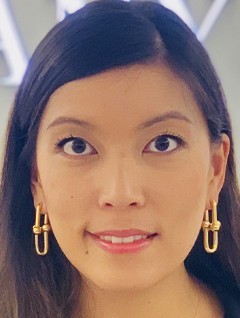 The Singaporean government announced that safety measures would come into effect on April 7th, giving us a very short time to prepare for the “circuit breaker”, the local name of a concept that has been generally called a “lockdown” worldwide. Surprisingly, no panic buying happened compared to people’s behaviors when all this happened in France, Italy or Spain. But why? Because, for us in Asia, this is already a so-called 2nd wave of the pandemic. The first one happened in January 2020, when the rest of the world still thought that this pandemic was a “China” virus, in only a Chinese related world. And this 1st wave was perfectly handled by the Singaporean government, then you may now asked yourselves why a second wave arose if the 1st one was contained? Because the second wave came directly from people returning from US and mainly Europe travels. Which made everyone realize to what extent people and exchanges are interconnected and linked.
The Singaporean government announced that safety measures would come into effect on April 7th, giving us a very short time to prepare for the “circuit breaker”, the local name of a concept that has been generally called a “lockdown” worldwide. Surprisingly, no panic buying happened compared to people’s behaviors when all this happened in France, Italy or Spain. But why? Because, for us in Asia, this is already a so-called 2nd wave of the pandemic. The first one happened in January 2020, when the rest of the world still thought that this pandemic was a “China” virus, in only a Chinese related world. And this 1st wave was perfectly handled by the Singaporean government, then you may now asked yourselves why a second wave arose if the 1st one was contained? Because the second wave came directly from people returning from US and mainly Europe travels. Which made everyone realize to what extent people and exchanges are interconnected and linked.
Business wise, the economy has been impacted and might take several months before any sign of recovery. The positive point coming out that: people have started to look for more connections and positive solidarity from each other. In Singapore, all representatives of the Alumni chapters coming from French “Grandes Ecoles” have connected even stronger to quickly develop the network under one banner : “French Grandes Ecoles” initiatives, working with the local French Chamber of Commerce and the embassy, developing a platform where we can exchange, share information, seek advice and of course job offers. We also connect people every week through lunch talks that are organized with Leaders from the region discussing about various topics. I invite you to have a look at our Linkedin group.
Clément Dalmay, GEM PGE 2017,GEM Alumni in New York,
Associate EPM Consultant at The Dannon Company, Inc.
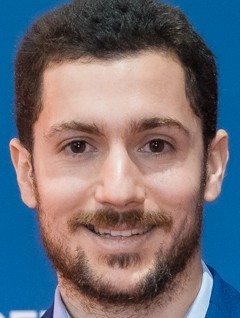 To see the city that never sleeps completely shut down in a matter of a few days is quite disturbing. Grand Central or Times Square, which are usually swarming with people, have become deserted.
To see the city that never sleeps completely shut down in a matter of a few days is quite disturbing. Grand Central or Times Square, which are usually swarming with people, have become deserted.
From a social point of view, confinement was not mandatory unlike in many European countries. Quarantine and social distancing were left to the free will of the individual, although strongly suggested. As such, although New Yorkers complied relatively well with the rules, the the virus spread quickly because of the high density of the city. Nevertheless, wearing a mask soon became mandatory in public places (public transportation/supermarkets).
Then, from a more professional point of view, many companies reacted quickly and imposed teleworking on their employees. At Danone, with Guillaume, for example, we teleworked earlier than in France (March 11). The same goes for most of the Alumni with whom I was able to exchange. I think and hope that, once the crisis is over, this experience will have a positive effect on the development of teleworking in the digital age.
Finally, a more negative point concerns the rapid dismissal of a large number of people (my roommate included). From 3% in February, unemployment rose to 14% in May with more than 30 million unemployed. Fortunately, I have not heard from any alumni who have lost their jobs, but some who had not started their mission have seen their hiring frozen.
Karine Pham, GEM PGE 2005, GEM Alumni in Sydney,
JDE Business Analyst at Civeo Australia
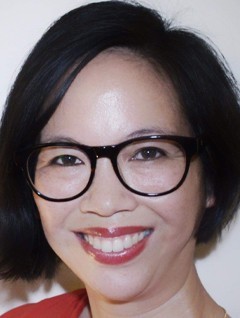 The coronavirus was taken seriously in mid-March in Sydney. Around this time, most companies had their employees start working from home. We are lucky in Australia, because we have few cases compared to France or the USA. And even if Australians are pretty relaxed, it doesn't stop morale from being low, especially for those who lost their jobs. The government has put in place aids like JobKeeper for companies and JobSeeker for the unemployed. The government pays daycare centers between April and July. And those who have kept their jobs consider themselves lucky to still have one, even though many of them have seen their wages reduced by 20%.
The coronavirus was taken seriously in mid-March in Sydney. Around this time, most companies had their employees start working from home. We are lucky in Australia, because we have few cases compared to France or the USA. And even if Australians are pretty relaxed, it doesn't stop morale from being low, especially for those who lost their jobs. The government has put in place aids like JobKeeper for companies and JobSeeker for the unemployed. The government pays daycare centers between April and July. And those who have kept their jobs consider themselves lucky to still have one, even though many of them have seen their wages reduced by 20%.
Concerning the GEM Alumni Network and the European Aussie Drinks (formerly known as French Aussie Drinks), we had to stop and cancel all events in Sydney and Melbourne since March. As we were doing joint events with other business schools (French Business School Alumni in Australia) or European Chambers of Commerce, we had up to 300 registrants in Sydney and 150 registrants in Melbourne. It was then no longer possible to continue for obvious health safety reasons. We hope that when things get better, we will be able to come back.
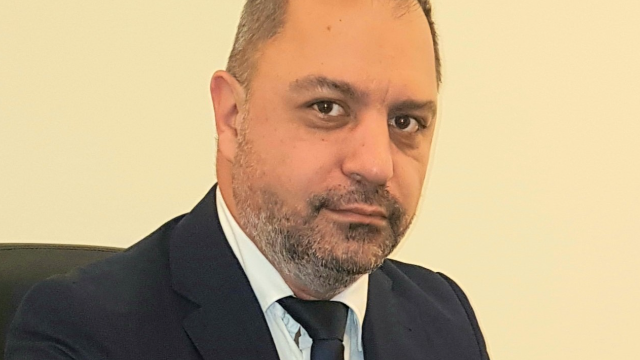
Comments0
Please log in to see or add a comment
Suggested Articles
